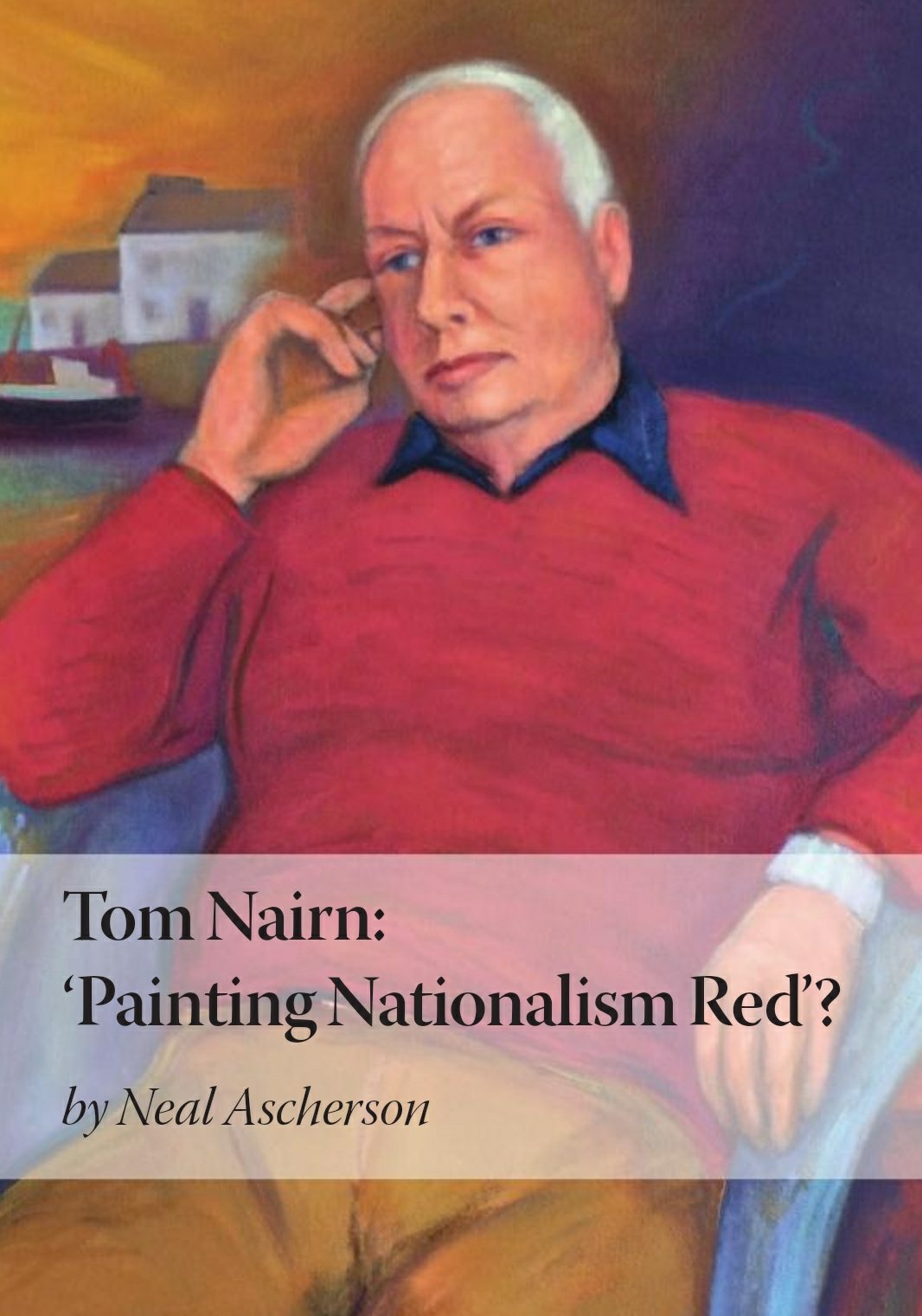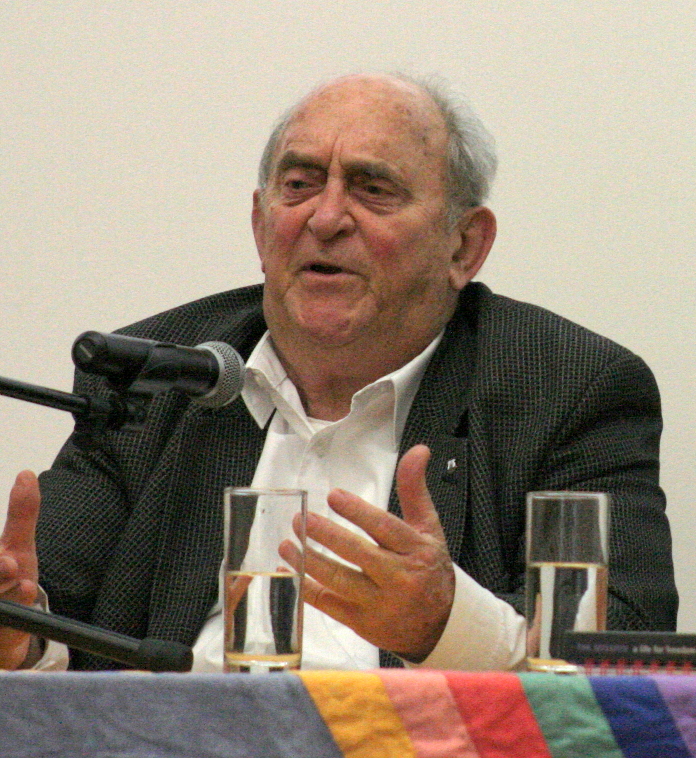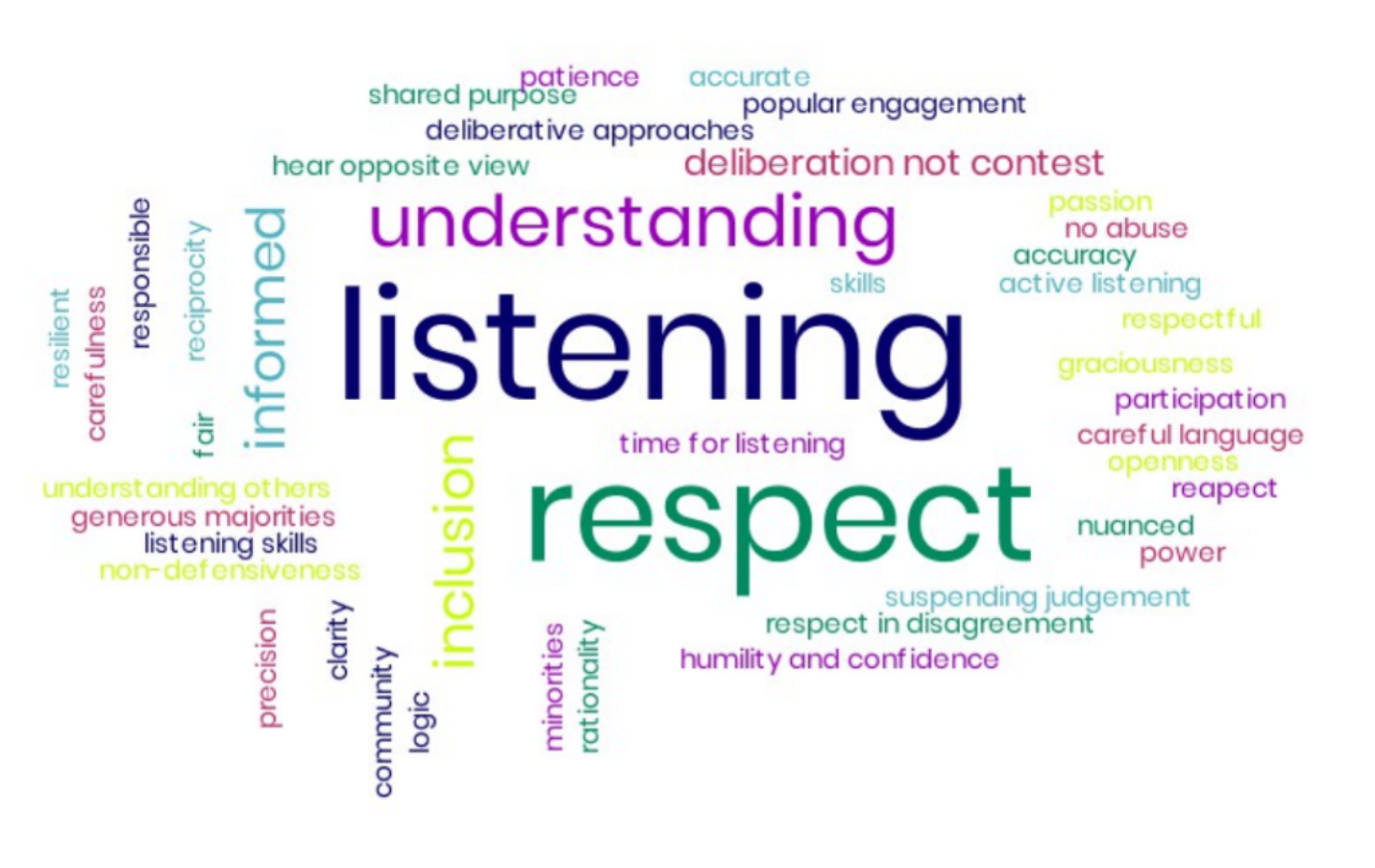
A version of this first appeared on OpenDemocracy.
As Western civilisation struggles with the ‘crisis of meaning’ we need to find ways to create shared common tasks. There is a turn to describing these demanding tasks as challenges. It is a welcome development that drives innovation and novel syntheses. But this turn has not yet responded to the demand that decisions are made in more participatory and deliberative ways. The crisis of meaning stems from a society-wide failure to agree shared goals. By aligning deliberative approaches with grand challenges we may be able to create innovative solutions to the deep crises facing our world.
We know that there are a series of Grand Challenges which we must tackle. Climate breakdown threatens the very existence of our society, poverty blights the lives of billions of people, we are running out of antibiotics. We need a way to address these problems. But we must not lose democracy in this. Grand challenges are all-too-often deployed in a way that marginalises democracy. What I outline below seeks to align an approach to our economy that aligns grand challenges with a more vigorous democracy to ensure that we use the technology at our disposal to tackle the challenges we must address.
It is particularly important to understand that free market capitalism’s strongest asset was its ability to effectively allocate resources in an information-poor context. Yet the world we live in, and especially our economy are now information rich. The business model of the big Silicon Valley companies, like Google, is entirely based on data for business (“if you’re not paying for it, YOU are the product”). What I propose is a method to turn this understanding of demand into social good, rather than trillion-dollar valued companies.
The failure of technocracy and markets
In the 1980s a trend emerged: public opinion data began to drive our politics. By having a data-rich approach to designing political programmes, the thinking went that parties could deliver what people wanted. The data was created through extensive polling and focus groups. Each policy or initiative was tested against public opinion to discern what was popular. In the UK, with Tony Blair as leader Philip Gould guided New Labour to massive election victories on the back of this approach. Hand-in-hand with the ideology of New Public Management, this transformed citizens’ relationship with the state, reformulating it around a consumer model. Citizens became mere customers of public services.
These twin-approaches were shaken – particularly in the UK – by the decision to go to war in Iraq. And the combination of polling-led government and new public management finally foundered on the rocks of the global economic crisis after 2008. People were happy to be consulted if they thought the government was acting in their interests. Opinion-led technocratic government is only effective for as long as people believe that technocrats can make better decisions than they can. The decision to deregulate global financial markets made people believe technocrats were not capable of the basic technocratic skill – they weren’t very good at making decisions.
The technocratic society comes with a range of symptoms. People are disengaged and feel decisions are taken without them. This makes citizens skeptical about the ability of politics to deliver for people and reckless about the decisions they make when given the opportunity to vote.
We also have a lack of shared social goals. The crisis of meaning that characterises our society and economy makes people feel we cannot approach big social or environmental problems as a society. We know that the structures we have are not achieving this. But what we lack is any structure by which to define and agree on what these shared social goals are.
Participation and deliberation in an economic system
Below I set out both how we can re-engage citizens in the process of making decisions and then how we can use that re-engagement to decide upon and tackle the grand challenges of our era. I draw on concepts around participatory and deliberative democracy and challenge and mission approaches in public policy.
I believe that we can draw these together to build the popular support for an economy that tackles the great challenges of the age, and does so with the efficiency that we associate with war economies.
We have a society marked by substantial changes since the creation of the democratic structures on which we depend. Principally these changes are:
1. Substantially better-educated citizens
The 1945 Labour government chose to govern nationalised industries through much more traditional top-down structures because they believed that workers lacked the necessary skills to manage their own places of work. Whether this was true or not, it is definitely the case that today’s demos are very substantially better educated than that of the 1940s.
Joe Guinan cites (p.50) “Stafford Cripps’ claim, during the 1946 debates over nationalisation, that it would be ‘extremely difficult to get enough people who are qualified to do that sort of job, and, until there has been more experience by workers of the managerial side of industry, I think it would be almost impossible to have worker-controlled industry in Britain’ (Coates, D. (1975) The Labour Party and the Struggle for Socialism, Cambridge, Cambridge University Press).”
2. A society and economy that is marked by substantially more choice and autonomy both in the workplace and in our everyday lives
Our lives are saturated with choice in a way that previous generations would not have recognised. From choice in school meals to the end of the job for life, we spend much more time making choices for ourselves. This extends to the workplace where most workers enjoy much more autonomy than they did 50 years ago.
3. Tools to disseminate a quantity of information at a speed previously unimaginable
We have the ability to transmit information at unprecedented speed and in unprecedented quantities, allowing decisions to be made in real time across different locations in much more informed ways. From social media to digital tools for deliberation there are methods that allow many more people to be involved in many more ways in understanding public policy.
Currently, these developments are being deployed in commercial and organisational contexts but have yet to meaningfully enter our democracy. Many companies have adopted techniques and approaches like Buurtzorg social care cooperatives use technology to maximise worker autonomy and bring increased productivity and happiness. In almost every workplace decisions are made or communicated electronically. Yet the main reactions from progressives have been either to ignore these changes or to demand a return to top-down technocratic approaches. Both are doomed to failure.
We can measure the success of democratic processes through the ability of people to accept an outcome that wasn’t their preferred option – what political scientists call “losers consent”. At a time when the opportunity to empower citizens has never been greater, we need urgently to understand how we can harness these developments to deliver social change.
There are a number of approaches in this area that can help to deliver a more democratic society. Michael Albert and others have codified this approach as participatory economics, which forms a basis for building a popular economy. The Participatory Budgeting and Planning approaches that are becoming more popular having been piloted in Brazil are important tools for making outcomes more popular. In Ireland, Citizens’ Assemblies have allowed two very well contested referendums on contentious issues (equal marriage and abortion) which enjoyed almost universal losers’ consent. Minipublics, citizens’ juries and a vast array of other deliberative and participatory tools are now available.
What is important, though, is not which tools we use. We need to get better, more practised and more comfortable with making decisions. Too often democracy is seen as divisive, scary and difficult. In reality, the alternative is totalitarianism. And perhaps the most important way we can change this situation is to develop methods that allow people to be heard through the process. That way we can facilitate losers’ consent, and build systems that generate confidence through decision making. Democracy has always meant decision making by the people. The attempt to redefine it has led us to where we are. We need to claim back the original meaning of democracy. We need to allow people to make decisions again.
Challenges and Missions
However, we should not just use these tools within our existing systems: we need to find new ways to create shared societal goals. There is a move to creating and defining “Grand Challenges” that could act in this way. Some of these are based on the Sustainable Development Goals, some are set up by wealthy individuals, and some are set out by governments.
Instead of the aim of government being to grow the economy, it should be to address these challenges. The priority given to challenges and how they are defined can be agreed through deliberative processes. From the ageing society and climate breakdown to the role of humans in a world pervaded by data and automation, it is clear that the market cannot deliver the solutions we need. Instead, we should use deliberative processes to set out the priorities and resources needed to solve these problems.
For all that business leaders espouse free-market ideology, few businesses use them internally. Indeed Sears (the American supermarket operator) tried, and have since gone into administration. The free market’s great advantage is that it is able to allocate resources in low-information contexts more effectively. But most businesses are high-information contexts, and our economy is now information-rich. We can use participatory and deliberative techniques to decide on what the challenges are, then use our information-rich economies to solve those challenges.
Mariana Mazzucato sets out how most private sector innovation is, in fact, the outcome of public sector research and development. In her dazzling book “The Entrepreneurial State”, she explains that even the highpoints of capitalist achievement, like the iPhone, are almost entirely based on public research. Public research gave us the touchscreen, mobile network technology and global positioning system technology that makes the iPhone a useful device.
She goes on to argue that the state can benefit from this investment through the creation of missions. I argue that these missions and the Grand Challenges with which they fit should be decided and defined through the deliberative processes I describe above.
The crucial aim of this process should be to create missions that are specific enough to create the change they seek, but also general enough to allow people to develop innovative solutions. The solution to eradicating poverty might be a universal basic income, or it might be universal basic services or a mixture of both. Or it may be a solution we have not yet developed. The challenge should allow for both testing of the options we understand and for new options.
Once we have decided on a Challenge, like addressing climate breakdown, it can form a focus for participation. At a stroke, we can overcome the silos and barriers dividing public and voluntary or private sectors. We can begin to unleash human ingenuity in the service of these Challenges. They can be broken down into missions that allow people to contribute. To take an example in the climate breakdown challenge: this might be broken down into categories from zero-carbon transport or decarbonising domestic heating systems. This opens the way for institutional, individual and government action towards these missions.
These Challenges could come from a number of sources. They might be drawn down from the Sustainable Development Goals, or from national structures like the Scottish National Performance Framework. Most importantly there should be a process by which citizens can trigger a Grand Challenge. This could be through a citizen’s initiative or official petition like the existing EU or Number 10 petition sites. It could also be through interventions by social partners (like Trade Unions or Professional Bodies) or elected representatives. At a continental or global level, this could be generated by national or sub-national governments.
To give a worked example, we might want to address the Grand Challenge of Climate Breakdown. This might be triggered by citizens, governments or social partners. It would then be broken down into missions. These might focus on reducing carbon emissions through energy, land use, transport, heat, construction or other major causes of greenhouse gasses. They could then prompt economy-wide action to reduce the use of internal combustion engines or to rewild for carbon reduction, or any of the other ideas that we haven’t yet pressed into action.
Because there has been citizen leadership and will be citizen involvement it creates a situation like a war economy. War economies are remarkable for their increased productivity and innovation. The advances in aeroplane and rocket technology during the Second World War are good examples of how war economies can create innovation. They are also very effective at prioritising investment for activities to tackle challenges. War is, of course, incredibly destructive, but creating an economic paradigm that replicates the mission-focus of a war economy with a less destructive alternative offers the benefits without the costs.
Citizen involvement should not be limited to the definition or prioritisation of challenges. Involving people in the development of policy through research, citizen science and social science, action research, crowdsourcing data and other mechanisms should complement the processes of definition and prioritisation. By increasing citizen involvement we can help broaden understanding of how decisions are made. This will strengthen public faith in those decisions and the processes and structures that supported their development.
Utilising the unprecedented wealth of information that saturates our world will make markets look like blunt tools. Dealing with the real challenges of our age will re-engage citizens in politics and research. And if we can focus our efforts on addressing challenges like climate breakdown we can secure a future for our society.
This will replace the current failed methods with deliberative techniques designed to build public priorities into the policy process. It is the most effective way to chart a way forward that avoids the morbid symptoms that come with the crisis of meaning. It moves our collective decision towards decision making on the basis of popular will and the demanding common task.
It means we can begin to build public expertise in decision making, creating better policy. It means basing our future in collective intelligence. But this goes well beyond policy, it is about creating ways to work together so we can create a better world.



